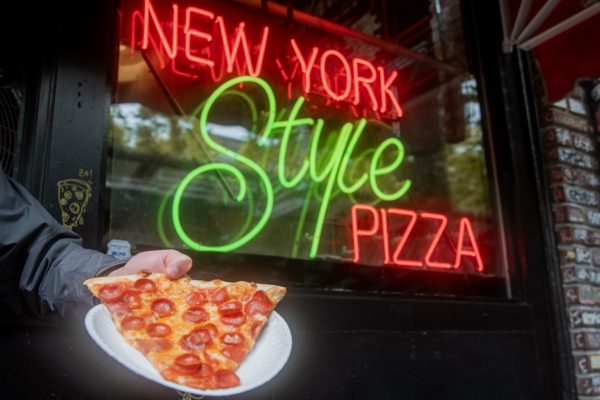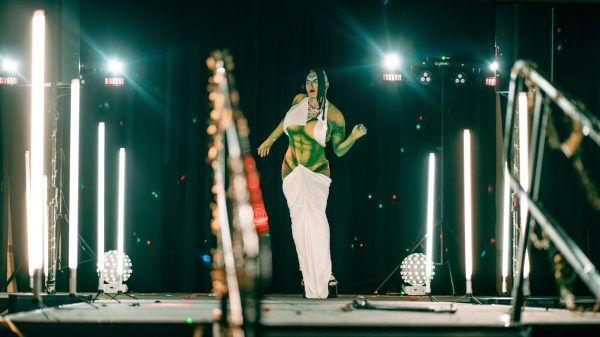2023 Golden Globes Return After Investigation and Boycotts
After last year’s cancellation, the red carpet rolled out once again for the 80th Golden Globe Awards. The Hollywood Foreign Press (HFPA), the non-profit organization responsible for operating the awards ceremony, hosted the awards in Beverly Hills, Calif., Jan. 10. after a year reprieve and internal action towards a more inclusive environment. Yet filmmakers and viewers alike are questioning if anything has really changed.
The Golden Globes underwent major changes after a Los Angeles Times investigation detailed the lack of diversity and questionable management decisions within the HFPA. There was only one POC within the committee, and many suspicious expenses—including 5-star hotels and a $125,000 COVID-19 emergency fund—were recorded since 2020. Brendan Fraser, Scarlet Johansen and WanerMedia were among several companies and celebrities who boycotted the 79th Golden Globes, and NBC refused to televise the ceremony until the HFPA went through with their promised reforms, according to TVLine.
The HFPA carried out their reforms October 2021, hiring 21 new members of Black, Asian, Hispanic and Middle Eastern/North African descent. Variety reported the committee also made several new policies, including DEI training and the banning of paid travel and gifts.
These changes did not stop celebrities and filmmakers from raising concerns about the HFPA’s hurriedness to recover lost supporters and money. Jerrod Carmichael, this year’s host, began the Golden Globes by pointing out he was the first Black host the ceremony had in decades, saying he took the job believing nothing really changed.
Craig Downing, a film professor at Seattle University who also works as a freelance cinematographer and director, commented on how slow the HFPA was to support diversity in Hollywood.
“It was a reactive thing versus a proactive thing,” Downing said. “The movements they are doing now are a reaction to complaints that they had plenty of time—if they wanted—to do on their own, but they didn’t.”
After Jerrod Carmichael’s blunt introduction, the Golden Globes kicked off the evening by awarding Vietnamese-American actor Ke Huy Quan the Best Supporting Actor in a Motion Picture award for his performance in “Everything Everywhere All at Once.”
Throughout the ceremony, many POC works and roles were celebrated by the audience. Quinta Brunson, Zendeya and Michelle Yeo won best performance in their respective categories. Indian composers Kala Bhairava, M. M. Keeravani and Rahul Sipligunj’s “Naatu Naatu” in “RRR” won Best Original Song. The Golden Globes also awarded gay television director, writer and producer Ryan Murphy the Carol Burnett Award and actor Eddie Murphy the Cecil B. DeMille Award.
However, there were some nominees and winners that raised eyebrows amongst audience members. Director Steven Spielberg won Best Director and Best Motion Picture (Drama) for “The Fablemans,” making these his eighth and ninth awards. There was only one female nominee for Best Original Score. The nominee list for Best Performance by an Actor and Actress in a Limited Series, Best Performance by an Actor in a Television Series (Drama) and Best Performance by an Actor in a Supporting Role in a Limited Series composed entirely of white actors and actresses.
It is apparent that despite the HFPA’s changes, people of color still receive less financial support than their white counterparts not only at the Golden Globes, but also the world of Hollywood. Seattle U film professor John Trafton explains that while new and diverse storytelling is finally being given the platform to reach the masses, their creators are still competing in an industry which favors repetitive and biased works and their creators.
“The films that are being celebrated at these award ceremonies are getting more diverse, but, at the same time, they fall into a small range of films,” Trafton said. “I do not see them taking any more or less of the same risks they were taking in 2018 or 2019.”
However, it cannot be denied that Hollywood is taking an interest in films and shows targeted to specific groups of people. Fourth-year film student Alexandrea Garnica noted the industry is finally listening to the wants of the people. They see that the people are tired of the same creators and formulaic writing and want to see films that they can find themselves in.
“I think as time goes on, people are becoming less and less satisfied if diversity is not seen as an inherent part of film,” Garnica said. “People want to be able to see themselves on the screen [and] it is really nice to see a protagonist that looks like you or has a similar background to you.”
Though the HFPA has taken steps for a more inclusive awards show, fans hope to see the Golden Globes and Hollywood respectfully celebrate films and television shows written by and about people of all races and identities.










